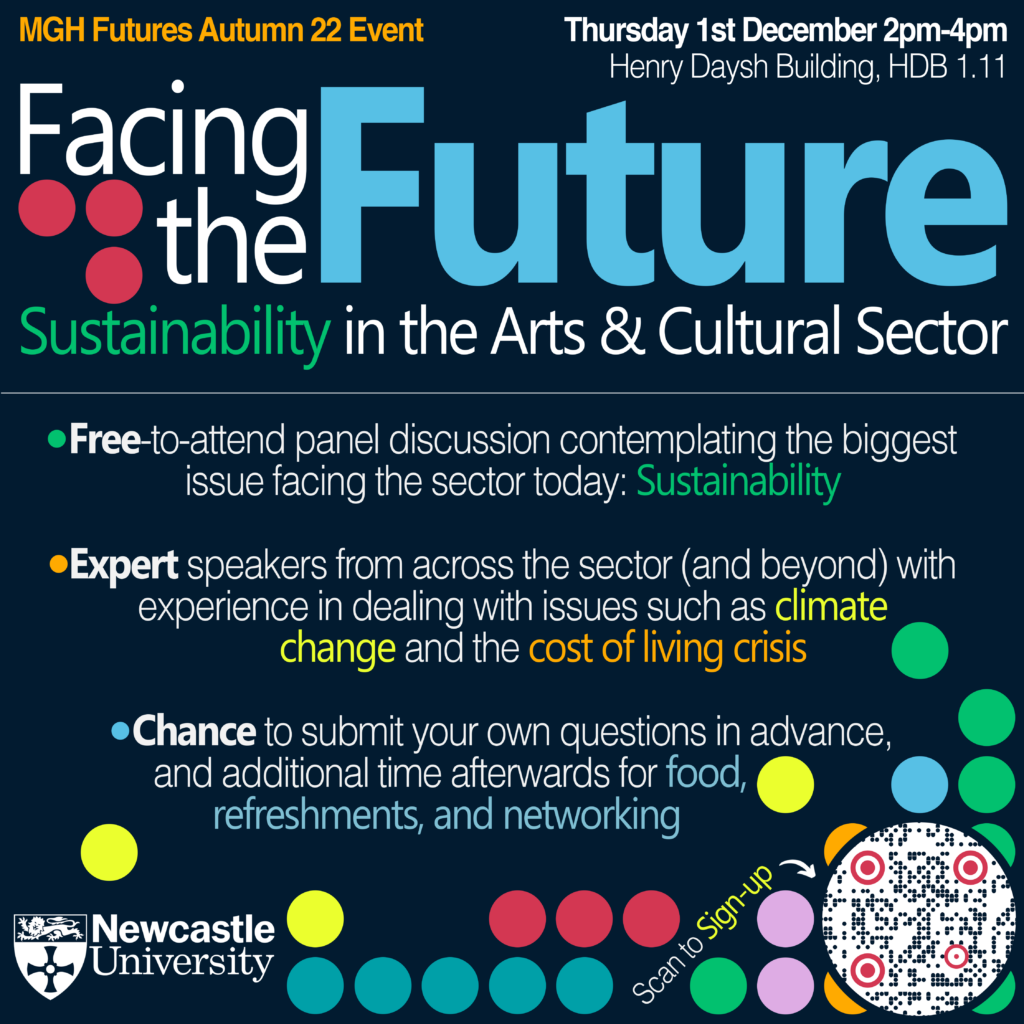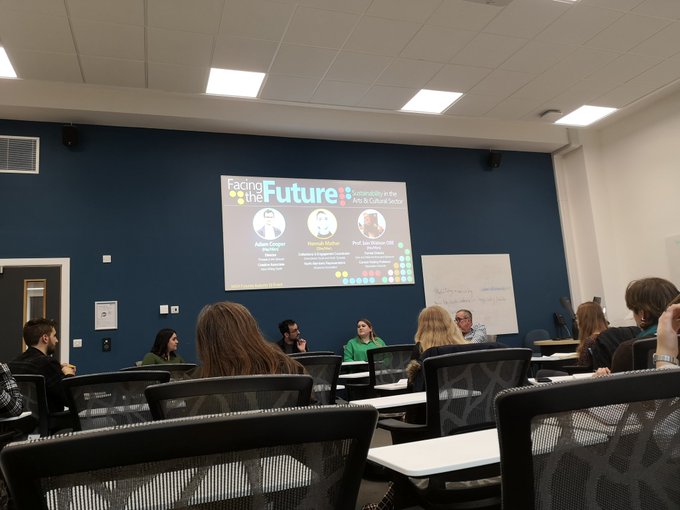Preparation
Planning for MGH Futures Autumn 2022 began in October, and the starting point was to simply consider what sort of event we, as people at the very beginning of our journey in the MGH sector, would be excited about. This was particularly relevant considering that our primary audience would be our fellow Museum, Gallery and Heritage Studies classmates, and we knew that our concerns would resonate with them too. We titled the event “Facing the Future”, due to wanting to allow our attendees to really understand the key issues that the sector is facing.
Most of our initial ideas revolved around entering the MGH sector, but with the knowledge that the MGH Futures Winter 2023 team are organising an event which will focus on just this, we instead looked at the issues affecting the sector that would be most relevant to emerging practitioners. This meant it was aimed at our peers who were also on our course, but we were lucky to have a high attendance from people from across the university, and even beyond.
Theme
Our initial idea stemmed from an article in The Guardian, describing how the cost of living crisis was really hitting home for many arts and cultural venues across the U.K. In a sector that we are looking to get into, this naturally would have a big impact on us, with reduced funding and less opportunities as it became less of a priority.

Although climate change is a massive global issue that affects everyone and everything, and something which is far too broad to cover in one panel discussion, there are some very particular challenges that it poses to the MGH sector. Working towards being a “green” sector was also very important to multiple panel members. The challenge of renovating older buildings to protect them for the future is expensive. Crucially, climate change and sustainability are also things that, as important as they are today, will only become more and more pressing over the coming years, just as we as a cohort are looking to enter the MGH sector.
Additionally, we thought of sustainability as not only about environmental sustainability, but also economic sustainability. Dealing with underfunding is ever important, as venues try to deliver their best possible work on limited funds. As previously mentioned, this was also a particularly relevant and timely topic, given the cost of living crisis being at the forefront of everyone’s minds this winter. Our panel discussed how arts and cultural venues have often been considered “warm spaces”, and this will likely continue as the cost of living crisis grows.
Speakers
When deciding on who we wanted to invite to our event as guest speakers, there were a few criteria which we considered really important to us. Firstly, we were really keen to make sure that our speakers represented all three elements of Museums, Galleries and Heritage Studies. Furthermore, whilst it was important to us that we secured speakers with extensive experience dealing with issues relevant to our theme, we also wanted to make sure that we enlisted speakers who were young and newer to the sector.

We were lucky enough to have a wonderful panel, consisting of Hannah Mather (Collections & Engagement Coordinator, Groundwork South and North Tyneside and Museums Association North Members Representative), Professor Iain Watson OBE (former Director of Tyne and Wear Archives and Museums, and current Visiting Professor of Newcastle University), and Adam Cooper (former Executive Director of Invisible Dust, Director of Threads in the Ground, and Creative Associate at New Writing North). Due to some speakers being unavailable last minute, if we were to create an event again, we would work on getting an even more diverse panel to allow for different voices and perspectives to be heard.
Final words…
Overall, we believe our event was a success. The stimulating discussion really brought home that there are so many issues that the sector is currently facing, but also reminded us that there are incredible people with fantastic ideas who are actively working on finding ways to lessen the impact of the issues. We learnt that us as young practitioners are the future of the sector, and we need to bring our different backgrounds to the table in order to benefit the sector.
Thanks again to the entire MGH Futures Autumn 2022 team for all their efforts in making ‘Facing the Future’ such a success, and as well to Dr Gayle Meikle for guiding us throughout the whole process.
